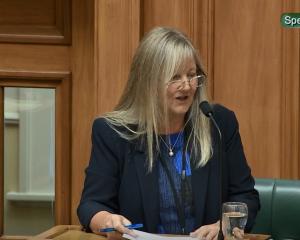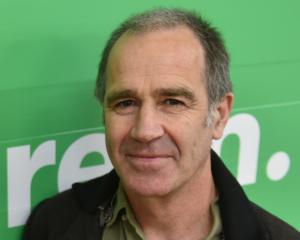A Bill giving the Government sweeping powers to combat obesity could result in supermarkets being told where to place unhealthy food, as well as restrictions on television advertising of junk food to children, critics say.
The Public Health Bill provides new ways for the Cabinet or Director-general of Health to act against the suspected causes of obesity.
Health groups are strongly backing the new provisions but the advertising industry is intensely lobbying politicians to amend the Bill before it is passed.
National health spokesman Tony Ryall yesterday labelled features of the legislation as ‘‘nanny state gone too far'', and argued the Bill could result in stores being told where to place items such as wine and cheese and restrictions on the sale of certain products near schools. It could also have implications for fast food sponsorships.
‘‘These are far-reaching regulations that have been sneaked into the Bill with very little fanfare or explanation,'' Mr Ryall said.
‘‘This is Helen Clark getting into your pantry.''
In the first submission yesterday to a select committee considering the Bill, a group of health organisations argued the provisions were urgently needed.
The Chronic Disease Prevention Peak Group - which comprises representatives from the Cancer Society, Diabetes New Zealand and the National Heart Foundation among others - revealed it had conducted a phone poll of 401 parents and grandparents and discovered most were concerned about television advertising of food and drink products to children.
Prof Norman Sharpe told the committee provisions in the Bill that potentially restricted that advertising would not fix obesity on their own, but were a ‘‘significant piece'' of the jigsaw puzzle.
‘‘It will take decades,'' Prof Sharpe said when asked how long it would take to reduce child obesity if television advertising was restricted.
‘‘But we need to pull out all the stops now and not wait for another decade to go by.''
He also dismissed suggestions the Government might order stores where to put items as ‘‘ridiculous''.
But New Zealand Advertisers Association executive director Jeremy Irwin said industry self-regulation had been successful, and parts of the Bill were unnecessary and written in an ambiguous way.
‘‘There are a lot of very contentious points in it that we need clarification on,'' he said.
Advertisers will make submissions on the Bill in coming weeks.
The Bill extends public health powers for the first time to non-communicable diseases such as cancer, cardio-vascular diseases and diabetes.
Health minister David Cunliffe last night said there were ‘‘still many conversations to be had'' before the final wording of the Bill was settled.
Non-communicable diseases were now the major cause of illness and death in society and had overtaken communicable diseases in that respect, he said.
‘‘At the present time, we have an obesity epidemic and the new Bill acknowledges that public health is about health promotion, prevention and targeting of specific health conditions, whether they be communicable or part of change in society.''












